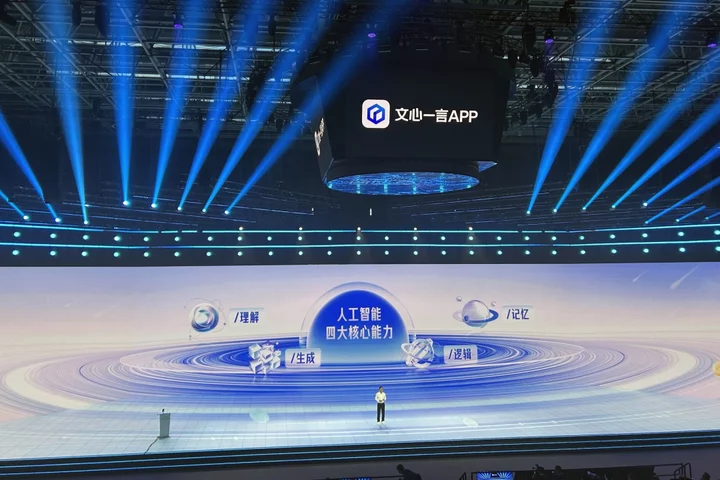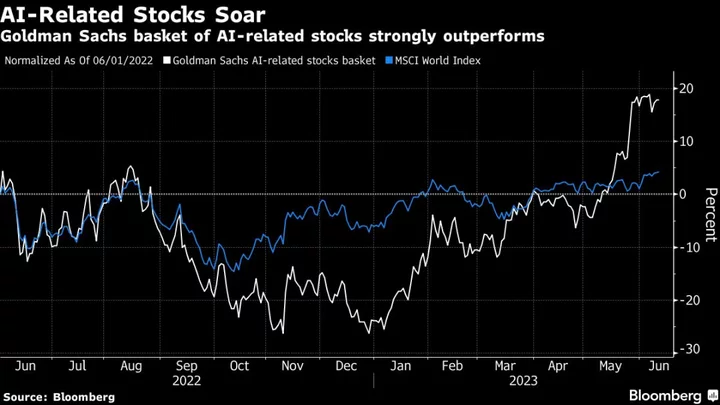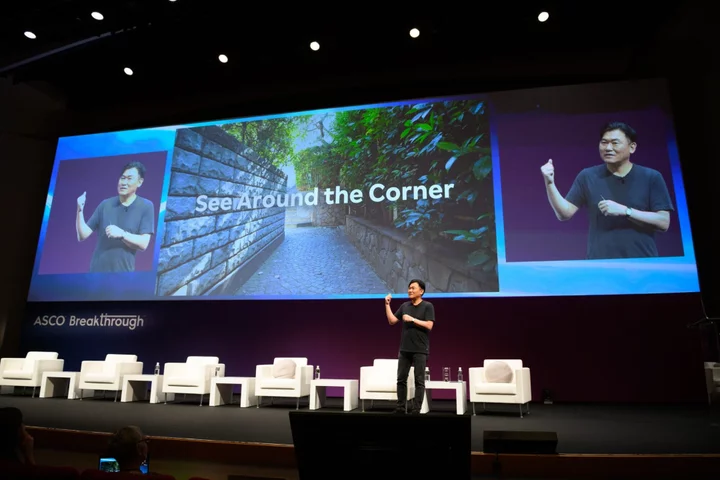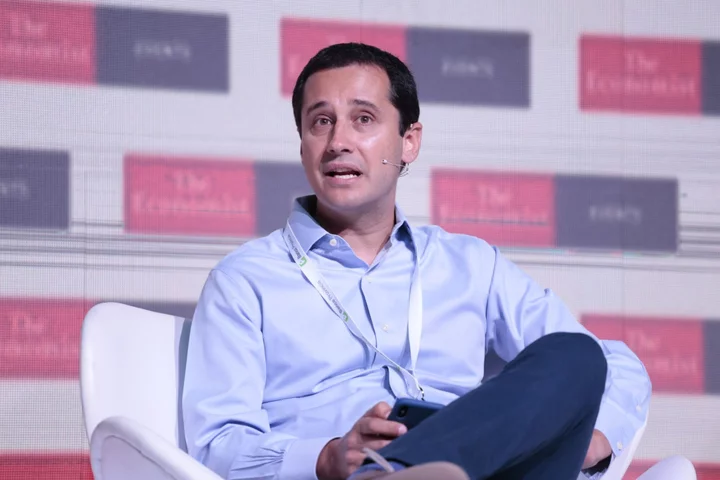Baidu Inc.’s founder Robin Li declared his company’s large language model has finally caught up with OpenAI’s advanced GPT-4, claiming the lead in his country’s race to develop AI that can rival the US.
The billionaire took the stage in Beijing Tuesday to run Ernie 4.0 through a Q&A designed to showcase its ability to provide answers and solve complicated puzzles on the fly. Ernie has matched OpenAI’s seminal product in terms of sophistication and general capabilities, Li told a packed house at a converted steel mill that now serves as an auditorium.
The marquee Ernie chatbot now surpassed 45 million users — a milestone that still lags ChatGPT’s estimated 180 million, though the US bot launched months earlier. China’s search leader, often referred to as a homegrown equivalent to Google, is pinning its hopes on AI to help it surpass rivals from Alibaba Group Holding Ltd. to Tencent Holdings Ltd. that control the rest of the internet. Baidu’s shares were down about 1.5% on Tuesday.
Baidu is leading a wave of aggressive investment across China after ChatGPT demonstrated the disruptive potential of generative AI — which can craft video and content from simple commands. It’s regarded as a leader in a race with local big tech firms and scores of startups to create a next-generation platform for the world’s biggest internet market.
They’re trying to compete with American names from Microsoft Corp. to Google to create services like ChatGPT and Dall-E, but US sanctions on Chinese access to the most advanced chips to train and run AI models, coupled with Beijing’s stringent censorship, could cloud their prospects. Washington is tightening curbs on shipments of AI chips to the country, stoking that uncertainty.
“Ernie is not inferior in any respect to GPT-4,” Li told the audience.
It’s challenging to grade AI models because of their sheer complexity. Li put the latest version of Ernie Bot through its paces in real time. He voiced queries on topics like buying property, posed math problems and asked it to write a novel set in the world of ancient martial arts. It’s a marked contrast from March, when the tech mogul unveiled China’s first answer to OpenAI’s red-hot bot via a scripted video.
Back in June, Baidu said an earlier version of Ernie surpassed OpenAI’s chatbot built on GPT-3.5 in general abilities. It also said it outperformed GPT-4 on several Chinese-language capabilities, citing a test by a local state newspaper. Baidu now hopes Ernie Bot will become a core business alongside online marketing, helping regain users lost to all-purpose apps run by TikTok-owner ByteDance Ltd. and Tencent.
Baidu has infused Ernie into flagship products like search, maps, file-sharing, work collaboration and data analytics.
Like its domestic rivals, Baidu benefits from clear government endorsement of a technology that has the potential to enhance not just entire industries, but also a struggling economy.
In August, China approved the first batch of generative AI services for domestic release, which included products from fledgling players and major technology names like Baidu and ByteDance. Ernie Bot at one point topped the download chart on China’s iPhone app store, surpassing one million users on launch day, though it was soon overtaken by mainstay services like Tencent’s WeChat.
--With assistance from Saritha Rai and Mayumi Negishi.
(Updates with user numbers since launch in the third paragraph.)









